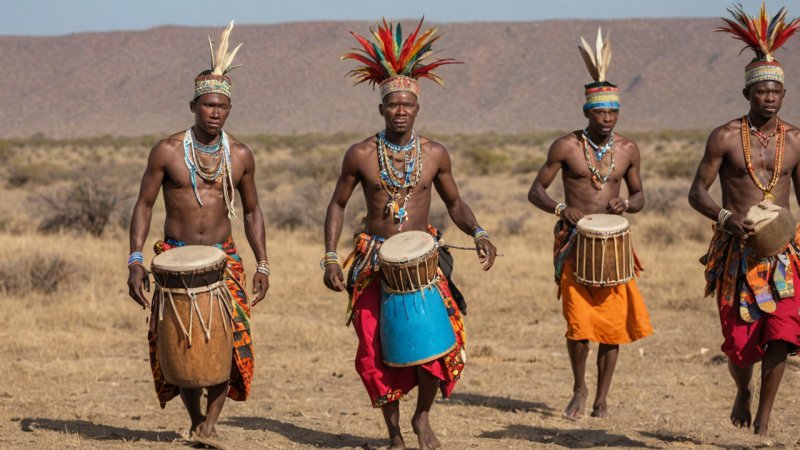Africa, a continent rich in diversity and culture, offers a plethora of unique spiritual experiences that reflect its deep-rooted traditions and beliefs. From the mystic pyramids of Egypt to the serene landscapes of the Maasai Mara, spiritual journeys in Africa are as varied as its people. This article aims to compare two notable spiritual experiences: the ancient rituals of the San people in Southern Africa and the vibrant ceremonies of the Yoruba religion in West Africa. By exploring their unique practices, beliefs, and cultural significance, travelers can gain a deeper understanding of the spiritual tapestry that weaves through the African continent.
Overview of the San Spiritual Practices
The San people, also known as Bushmen, are among the oldest inhabitants of Southern Africa, with a spiritual belief system that is deeply intertwined with nature. Their practices are characterized by a profound respect for the environment and a communal bond that transcends individual experiences. Central to their spirituality is the concept of n/om, a life force that is believed to flow through all living things.
Rituals and Ceremonies
The San engage in various rituals that often involve trance dances, which are performed to connect with the spiritual realm. These ceremonies are typically conducted by a healer or shaman, who guides participants through the process of entering a trance state. The dances are accompanied by rhythmic music and chanting, creating a powerful atmosphere that facilitates healing and spiritual connection.
Pros and Cons of Experiencing San Spirituality
- Pros: Visitors can engage with the San community, learning about their traditions firsthand. The experience fosters a deeper appreciation for indigenous cultures and their connection to nature.
- Cons: Access to San ceremonies may be limited, and the experience can feel commercialized in some areas. Additionally, language barriers may hinder deeper understanding.
Exploring Yoruba Spirituality
The Yoruba religion, one of the largest and most influential spiritual systems in West Africa, is characterized by a rich pantheon of gods, or orishas, each representing different aspects of life and nature. Yoruba spirituality emphasizes the interconnectedness of all beings and the importance of maintaining harmony with the universe.
Rituals and Ceremonies
Yoruba ceremonies are vibrant and lively, often featuring music, dance, and elaborate costumes. Festivals such as the Osun-Osogbo festival attract thousands of pilgrims who come to honor the river goddess Osun. Rituals involve offerings, prayers, and communal celebrations that strengthen the bonds within the community and to the spiritual world.
Pros and Cons of Experiencing Yoruba Spirituality
- Pros: The Yoruba experience is often more accessible to tourists, with established festivals and events that welcome visitors. The rich cultural expressions through art, dance, and music create a captivating atmosphere.
- Cons: Some aspects of Yoruba spirituality may be misinterpreted or oversimplified by outsiders. Additionally, the commercialization of festivals may detract from their spiritual significance.
Cultural Significance and Personal Connection
Both the San and Yoruba spiritual experiences offer travelers a chance to engage with Africa's complex cultural heritage. The San focus on nature and communal living contrasts with the dynamic and expressive ceremonies of the Yoruba, which celebrate individual and collective identities. The connection to the land and ancestors is a common thread, yet each group embodies a unique approach to spirituality.
Personal Reflection and Transformation
Visitors to San ceremonies often leave with a sense of calm and connectedness to nature, while those who participate in Yoruba festivals may feel invigorated by the energy and vibrancy of the events. Both experiences have the potential to foster personal reflection and transformation, allowing individuals to explore their own beliefs and values in relation to the world around them.
Conclusion
In summary, experiencing the spiritual practices of the San people and the Yoruba religion provides travelers with two distinct yet equally enriching perspectives on African spirituality. While the San offer a profound connection to nature and ancient traditions, the Yoruba present a lively and expressive cultural experience. Ultimately, the choice between these two unique spiritual journeys depends on personal preferences and the type of connection one seeks to cultivate during their travels in Africa. Whether you choose to dance under the stars with the San or celebrate the vibrant rhythms of Yoruba festivals, both paths promise to deepen your understanding of the continent's rich spiritual heritage.






